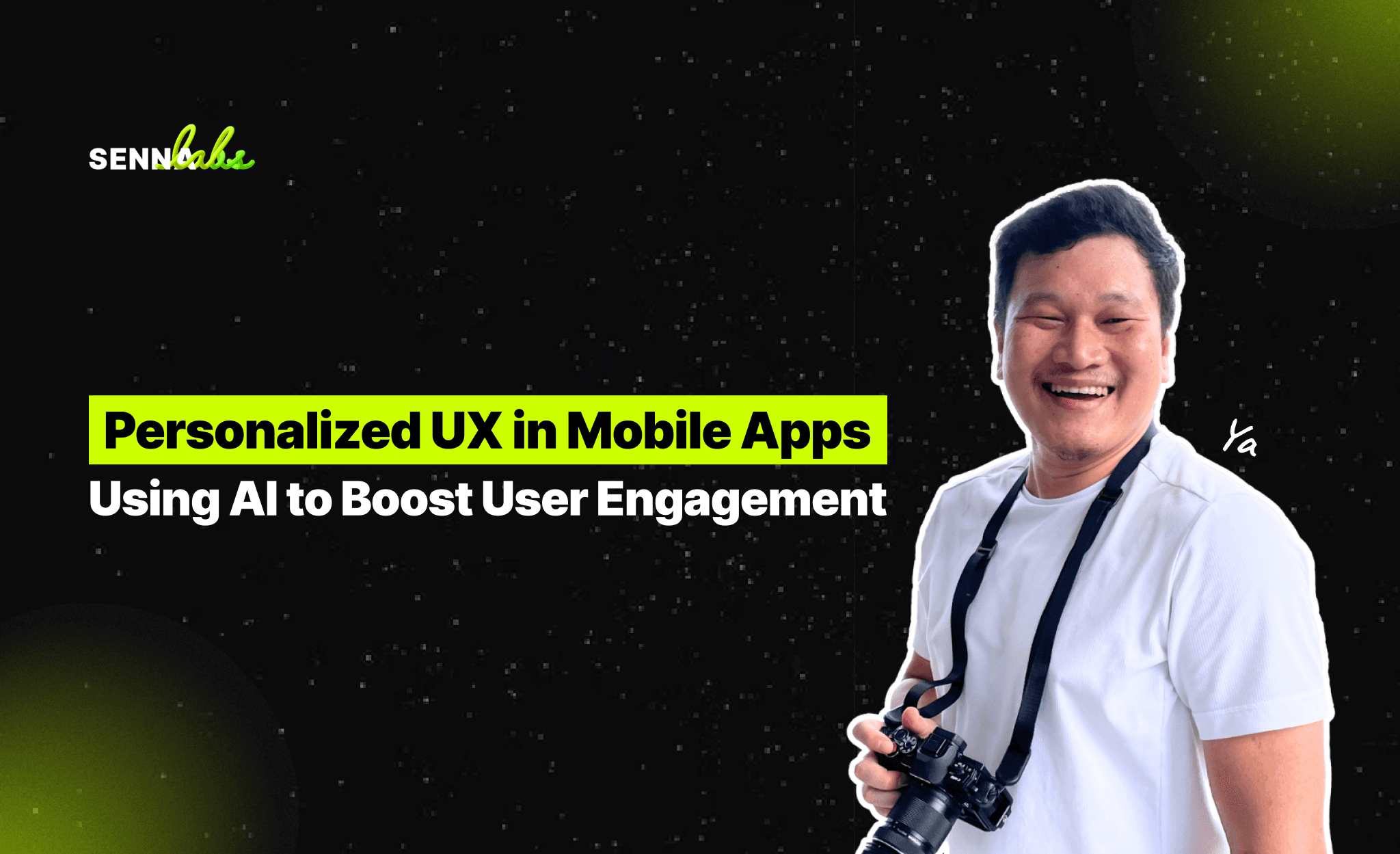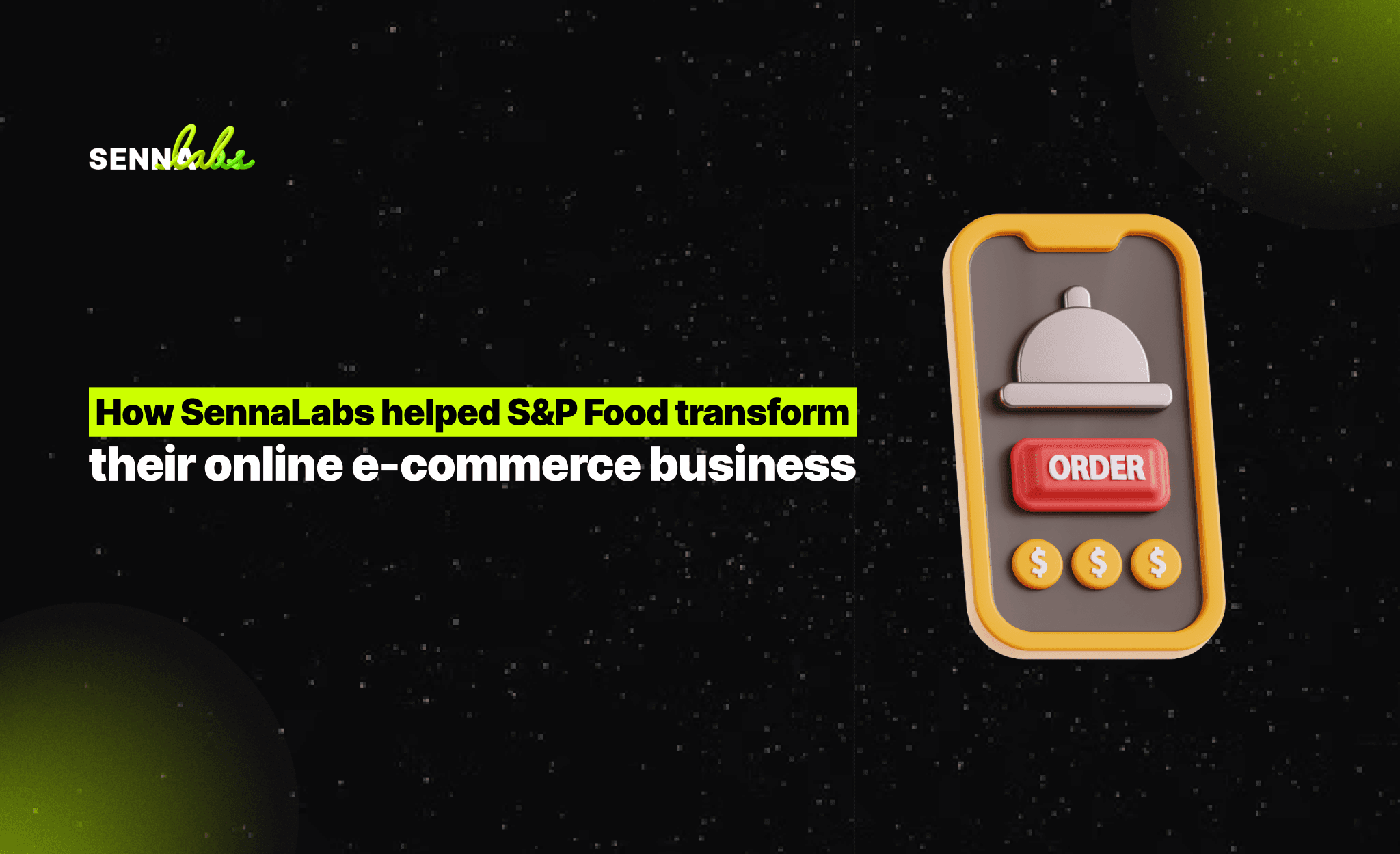Personalized UX in Mobile Apps: Leveraging AI to Improve User Engagement
Share

In today’s crowded mobile app market, creating a personalized user experience (UX) is no longer just a nice-to-have feature; it’s a necessity. Users expect mobile apps to understand their preferences, anticipate their needs, and deliver relevant content. Personalization enhances engagement, reduces churn, and fosters long-term loyalty. With the advent of artificial intelligence (AI) and machine learning (ML), mobile apps can now tailor experiences on a deeper level, creating customized user journeys that resonate with individual behaviors and preferences.
For example, a fitness app leveraged AI to personalize workout recommendations based on user data, such as previous workouts, activity levels, and preferences. This led to a significant boost in user engagement, as well as a reduction in app churn. This demonstrates the power of AI-driven personalization in not only attracting but also retaining users.

In this article, we will explore how AI can be used to create personalized UX in mobile apps, the benefits of AI-driven personalization, and practical strategies for implementing AI to improve user engagement.
Why Personalization Matters in Mobile UX
Personalization is key to delivering a seamless and engaging user experience. Users today expect more than generic content—they want apps to understand their unique preferences and provide tailored recommendations that save time, improve efficiency, and make their experience enjoyable.
Here’s why personalization matters:
-
Relevance: Personalized experiences ensure that users receive content and recommendations that are relevant to them, making it easier for them to engage with the app’s core features.
-
Increased Engagement: When users feel that an app “knows” them, they are more likely to interact with it frequently. Personalized notifications, suggestions, and content make the experience more engaging.
-
Higher Retention: Users are more likely to continue using an app that consistently delivers value. Personalization helps reduce churn by keeping the app relevant to the user’s evolving needs.
-
Improved Conversion: Whether your app’s goal is to increase in-app purchases or drive users to take specific actions, personalized experiences can guide users more effectively toward conversion goals.
AI plays a critical role in scaling personalization efforts, enabling apps to analyze vast amounts of data and deliver individualized experiences based on real-time user behavior.
How AI and Machine Learning Enhance Mobile UX
AI and ML technologies are at the forefront of modern mobile app personalization. These technologies allow apps to learn from user behavior, preferences, and interactions to deliver personalized content and experiences at scale. Here’s how AI can enhance mobile UX:
1. Personalized Content and Recommendations
One of the most common uses of AI in mobile apps is content personalization. By analyzing user data—such as browsing habits, preferences, and interaction history—AI can predict what content a user is most likely to engage with and present it proactively.
Example: In a music streaming app, AI can analyze a user’s listening habits to recommend new songs, playlists, or artists based on past preferences. By doing this, the app delivers content that aligns with the user’s tastes, increasing the likelihood that they will continue to use the app and explore new content.
Benefits:
-
Tailored Experiences: AI-driven recommendation engines ensure that users are presented with content that aligns with their interests, making the app more engaging and enjoyable.
-
Continuous Learning: AI adapts to users' evolving preferences over time, ensuring that recommendations remain relevant as their interests change.
2. Smart Notifications
AI can be used to optimize in-app notifications by determining the best time to send notifications based on user behavior patterns. Rather than bombarding users with generic messages, AI can tailor notifications based on previous actions, preferences, and engagement history.
Example: A fitness app can send personalized notifications to remind users about upcoming workouts, suggest new routines, or offer encouragement after a period of inactivity. The timing of these notifications can be optimized based on when the user is most likely to engage with the app.
Benefits:
-
Improved Engagement: By delivering personalized and timely notifications, AI can increase the likelihood that users will engage with the app.
-
Reducing Notification Fatigue: Personalized notifications ensure that users receive fewer irrelevant alerts, reducing the chances of users turning off notifications or uninstalling the app due to annoyance.
3. Behavior-Based User Journeys
AI enables mobile apps to create dynamic user journeys that adapt to each individual’s behavior. Instead of forcing all users through the same path, AI can customize onboarding flows, tutorials, and feature suggestions based on the user’s interactions and goals.
Example: In a project management app, AI can tailor the onboarding experience based on whether the user is a project manager, a team member, or a freelancer. The app might highlight different features and workflows depending on the user’s role, ensuring that they see the most relevant information.
Benefits:
-
Personalized Onboarding: AI-powered onboarding can reduce the time it takes for users to become familiar with the app, increasing the chances of long-term retention.
-
Tailored Feature Discovery: Dynamic user journeys ensure that users discover the most important features relevant to their needs, improving engagement and satisfaction.
4. Adaptive User Interfaces
AI can help create adaptive user interfaces (UIs) that evolve based on how users interact with the app. These interfaces can change layout, color schemes, or the arrangement of features to optimize for user preferences and behaviors.
Example: In an e-commerce app, AI could dynamically adjust the UI to highlight frequently purchased items or categories based on the user’s previous shopping history. The app might also change the way information is presented depending on whether the user is browsing for inspiration or looking for something specific.
Benefits:
-
Enhanced Usability: By adapting the UI to individual preferences, AI can make navigation easier and more intuitive, improving the overall user experience.
-
Greater Efficiency: Adaptive UIs streamline the user journey, helping users achieve their goals faster by presenting the most relevant options at the right time.
5. Predictive Search
Predictive search is another area where AI can enhance the user experience. By analyzing search history, preferences, and contextual data, AI can provide real-time suggestions as users type, making it faster and easier to find what they need.
Example: A travel app can use AI to predict a user’s search queries based on previous destinations, travel preferences, or even seasonal trends. As the user types, the app suggests relevant destinations, flights, or hotel options tailored to their history.
Benefits:
-
Faster Search Experience: AI-driven predictive search reduces the effort required to find specific content, improving user satisfaction.
-
Personalized Results: By analyzing user behavior, AI can prioritize search results that are most relevant to the user’s preferences, making the experience more efficient.
Implementing AI-Powered Personalization in Mobile Apps
For mobile app developers and designers, integrating AI-driven personalization involves several key steps. Here are some strategies to effectively implement AI for personalized UX:
1. Data Collection and Analysis
To personalize the user experience, mobile apps must first collect relevant data. This can include user preferences, interaction history, location, device usage, and more. AI systems analyze this data to identify patterns and behaviors that inform personalization efforts.
Key Considerations:
-
User Privacy: Ensure that data collection complies with privacy regulations (e.g., GDPR) and is transparent to users. Offer clear privacy policies and provide users with control over what data is collected.
-
Actionable Insights: Focus on collecting data that can be used to deliver actionable insights. For example, tracking user engagement with specific features can help identify opportunities for personalized recommendations.
2. Building a Recommendation Engine
One of the most common uses of AI in mobile apps is building recommendation engines. These systems use algorithms to predict what content, products, or actions a user is most likely to engage with.
Steps for Implementation:
-
Collaborative Filtering: Use collaborative filtering techniques to make recommendations based on user behavior and preferences. This method analyzes similarities between users and provides suggestions based on what similar users enjoyed.
-
Content-Based Filtering: Implement content-based filtering to suggest items that match the user’s past behavior, preferences, or attributes (e.g., recommending workouts based on fitness goals).
-
Hybrid Approaches: Combine both collaborative and content-based filtering for more accurate and personalized recommendations.
3. AI-Driven UX Testing
To ensure that AI-driven personalization improves the user experience, continuous testing is essential. Use A/B testing and multivariate testing to compare different personalization approaches and identify what works best for your audience.
Key Approaches:
-
A/B Testing: Test different AI-driven personalization features (e.g., recommendation engines, adaptive UIs) to evaluate which strategies increase user engagement and retention.
-
User Feedback: Gather direct feedback from users to understand how they perceive the personalized features. This feedback can help refine AI algorithms and improve the overall experience.
Benefits of AI-Driven Personalization for User Engagement
When done correctly, AI-driven personalization offers significant benefits for mobile apps:
-
Higher User Engagement: Personalized content and experiences keep users coming back, leading to longer session durations and more frequent interactions.
-
Improved Retention: Tailoring the app experience to individual users helps reduce churn by providing continuous value that evolves with the user’s needs.
-
Increased User Satisfaction: Users appreciate apps that “understand” them and cater to their preferences, leading to higher satisfaction and better app reviews.
-
Greater Conversions: Personalization can drive specific actions, such as purchases, sign-ups, or content interactions, improving the app’s overall business performance.
Conclusion
AI and machine learning have transformed how mobile apps deliver personalized experiences. By leveraging user data and predictive algorithms, apps can offer relevant content, smart notifications, and dynamic user journeys that cater to individual preferences. For app developers and businesses, integrating AI-driven personalization is key to improving user engagement, retention, and satisfaction.
As AI technology continues to evolve, the potential for even more sophisticated personalization will grow, enabling mobile apps to deliver ever more engaging and tailored experiences that keep users coming back for more.

Share

Keep me postedto follow product news, latest in technology, solutions, and updates
Related articles
Explore all


